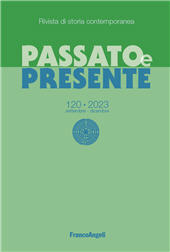Il vario linguaggio delle riforme :dalle crisi degli anni '70 alle transizioni degli anni '90.
7-59 p.
This debate aims to investigate the political and economic transformations taking place between the crises of the 1970s and the transitions of the 1990s, by analysing the spectrum of concrete alternatives and the contingent, diverse choices too often identified and summarised through the catchword of "neoliberalism". The three casestudies focus on Italy, Hungary and Yugoslavia, with attention to the trajectories of three internal mediators like Vittorio Foa, Tibor Liska and Branko Horvat. They were aware of the decline of previous political cultures and economic models vis-àvis the new challanges, but they tried to deeply revise the relationship between State and market and to point out a diverse language of reforms still linked to the reference to "socialism", despite the crisis and breakdown of the Soviet block. [Publisher's text].
-
Artículos del mismo número (disponibles individualmente)
-
Información
Código DOI: 10.3280/PASS2023-120002
ISSN: 1972-5493
KEYWORDS
- neoliberalism, reforms, Italy, Hungary, Yugoslavia, globalization Parole chiave: neoliberismo, riforme, socialismo, Italia, Ungheria, Jugoslavia, globalizzazione


